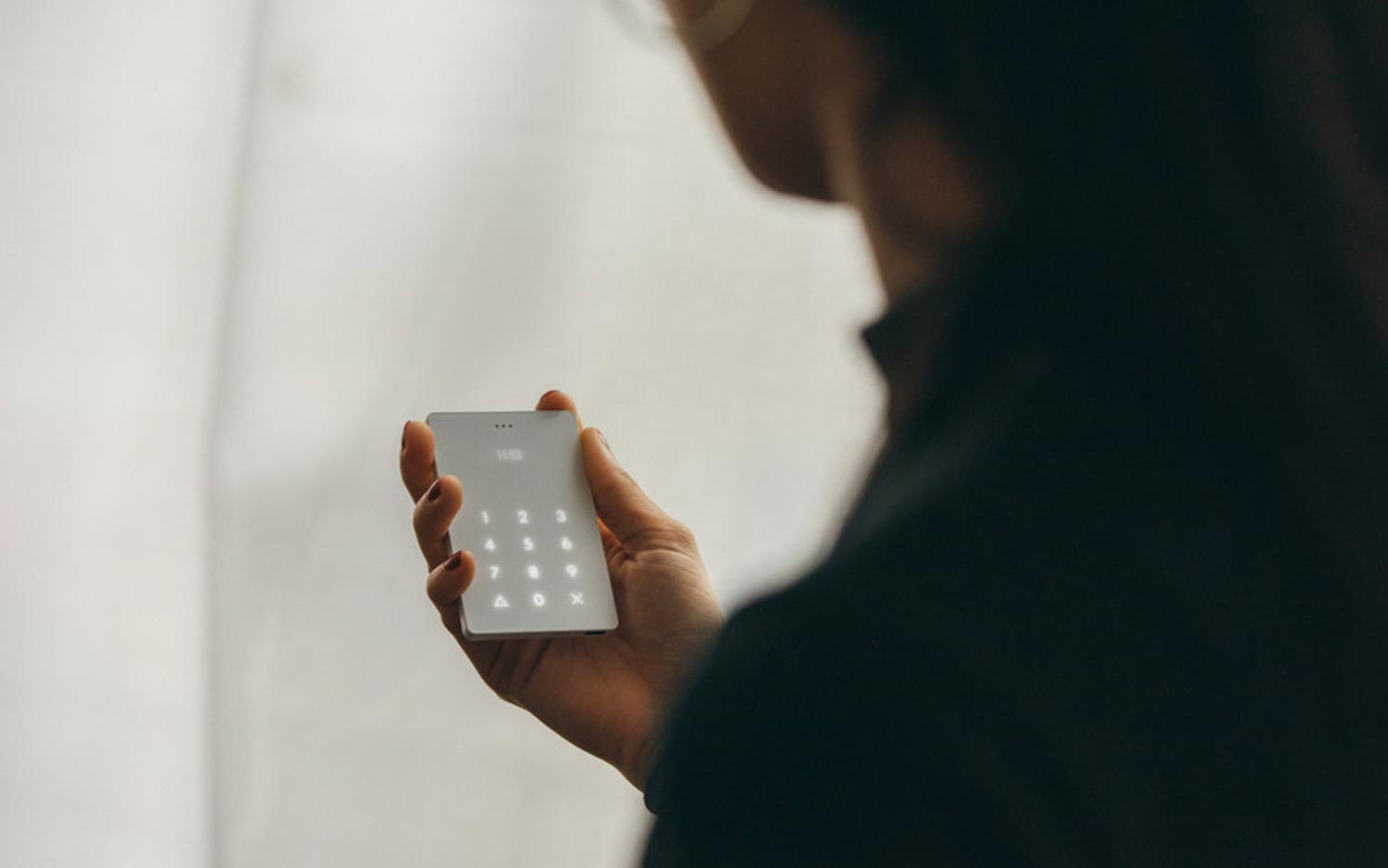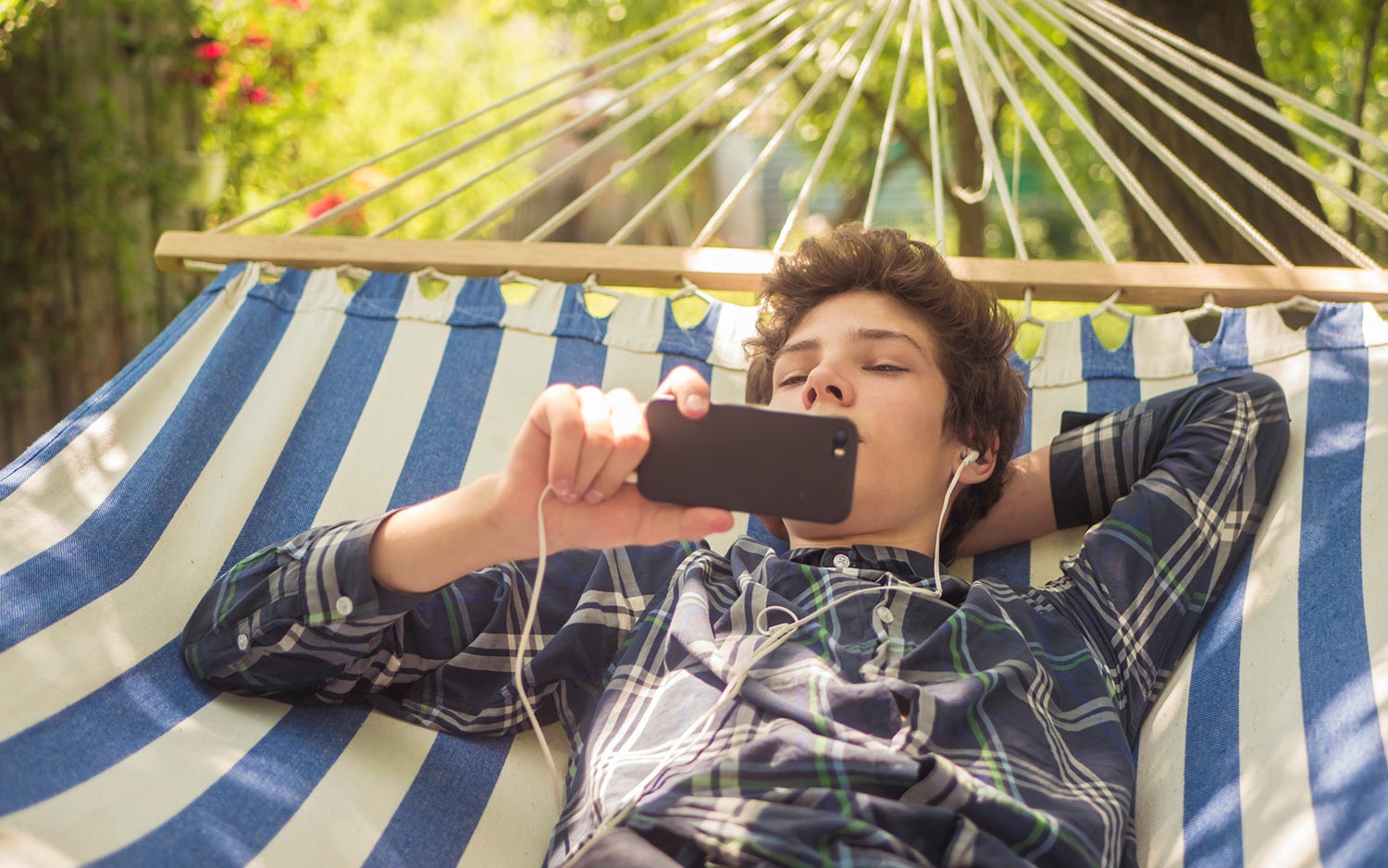When Is Your Kid Old Enough for a Smartphone?
Your child may be demanding a smartphone, but is he or she ready for that responsibility? Here's what you should consider when deciding whether your child should have a phone.
"Everyone else has one!" Those words are going to echo throughout your house any time your child tries to convince you they need a smartphone. And it isn't as much of an exaggeration as you might suspect.

Research from Pew found that 95 percent of teens have access to a smartphone — either theirs or a parent's — at home. And about 45 percent of U.S. children ages 10 to 12 have a smartphone with a service plan, according to Nielsen.
But knowing that a lot of kids and teens have a smartphone doesn't necessarily make it easy to decide if your own child is ready to have one.
"Having researched the subject for nearly a decade, the latest advice seems to suggest waiting until eighth grade at the earliest," said Blake Snow, a father of five and author of the book "Log Off: How to Stay Connected after Disconnecting."
That gives your child a year before high school to get used to using a smartphone, dealing with the information overload and learning to use the device responsibly, Snow said.
How do you know if your child is ready?
But deciding on an appropriate age for when your kid should have a smartphone is more about your specific child than it is about an arbitrary number of years they've reached, said Diana Graber, author of the upcoming book "Raising Humans in a Digital World: Helping Kids Build a Healthy Relationship with Technology."

Graber advises parents to think about how their child interacts with the other technology in their lives and their overall maturity level. Do they know how to protect their privacy online? Do they generally show good judgment in what they share on websites and apps? Are they informed on relationship safety, especially if the kids in question are at an age when they're dating?
Get instant access to breaking news, the hottest reviews, great deals and helpful tips.
Using a smartphone opens up a variety of ethical decisions for children, and the readiness to make those decisions varies by age, Graber said.
"Smartphones offer easy access to cyberbullying, to pornography, to pointless distractions, and to many unhealthy social media habits. Research shows no educational benefit to children owning their own smartphones."— Kentaro Toyama, University of Michigan
It's also important to think about how your child balances technology with other aspects of their lives, Graber added. Do you have trouble tearing them from the television or their video games, or have you caught them sneaking time online? These are indications that having access to a smartphone might create problems.
"If a child is too young to do or know any of the above, then he or she is too young for the massive responsibility that comes with owning today's smartphone," Graber said.
The argument for waiting, and waiting ...
Kentaro Toyama, W. K. Kellogg associate professor of community information at the University of Michigan School of Information and author of "Geek Heresy: Rescuing Social Change from the Cult of Technology," told us that the best age at which to give your child a smartphone is "as old as parentally possible, preferably not until they are adults with jobs who can afford them on their own."
Toyama acknowledged that there's intense social pressure among children today to have a smartphone and that teenage social life is hard without one. But he still believes the potential problems outweigh the benefits.
"Smartphones offer easy access to cyberbullying, to pornography, to pointless distractions, and to many unhealthy social media habits," Toyama said. "Research shows no educational benefit to children owning their own smartphones."
There are some situations in which it's valuable for children to have a way to easily reach their parents, Graber said, but that doesn't necessarily require a smartphone or an internet-connected device.

The Light Phone, complete with a noncolor screen and an overall lack of the functionality most expect as standard in phones today, is currently taking wait-list sign-ups for its next release, expected later this summer. An updated, but no less minimal, version of the phone was funded on Indiegogo and is expected to be released next spring.
And the Unihertz Jelly, which was also crowdfunded, is a 4G phone that has been miniaturized, perhaps making some of the more popular aspects of smartphones (like video use) less appealing.
If you want to pass along your own older smartphone but want to restrict use, you can do so without adding data to your child's plan. Some wireless carriers offer monthly plans that cover texting and voice only, with no data allotments. (Your child could still connect over Wi-Fi, though.)
And there's always the option to go old-school. "The good old flip phone is a great way to get started!" Graber said.
Making the rules
If you do decide to give your child a smartphone, it's important to set rules for its use from the beginning. Some of those rules will center around your own access to the device, to ensure your kid uses the device responsibly and safely.
"If a parent bought and is paying for the phone, then the parent should have access to it," Graber said. However, as children move into their teenage years, parents should start respecting their privacy, she said, just as those children should be better able to understand their online responsibilities.

Besides determining if your child is ready for a phone, you've got some additional research ahead of you. Some parents have created contracts with their kids that outline expectations for smartphone use. You can find several examples online that can guide discussions with your child about their responsibilities. Common Sense Media offers a comprehensive family media agreement, and Connect Safely has one that focuses on safe use and includes rules for parents and children.
"If a parent bought and is paying for the phone, then the parent should have access to it."— Diana Graber, author of Raising Humans in a Digital World
In addition, you'll want to research parental control applications, similar to those you may use on your home computer, available for both iOS and Android operating systems. (On the iPhone side, iOS 12 introduces new Screen Time and App Limits features you'll want to explore when deciding what phone to buy.)
It's important to recognize that the social issues kids face today are very different from those prevalent even a decade ago. Do some reading on the risks of online bullying, sexting and other potential minefields your children might come across. StopBullying.gov, run by the U.S. Department of Health and Human Services, features a section on cyberbullying. Tom's Guide has published guides for reporting bullying and abuse on social media networks, including Instagram, Twitter and Facebook; we also have parent guides for popular services like Snapchat and Twitch.
Credit: Shutterstock

Tom's Guide upgrades your life by helping you decide what products to buy, finding the best deals and showing you how to get the most out of them and solving problems as they arise. Tom's Guide is here to help you accomplish your goals, find great products without the hassle, get the best deals, discover things others don’t want you to know and save time when problems arise. Visit the About Tom's Guide page for more information and to find out how we test products.
